Nigella Lawson: I've learned to become more 'guarded'
- Published

Celebrity cook Nigella Lawson has made a career out of sharing - food, yes, but also much more.
In the opening scenes of her TV cooking debut in Nigella Bites in 1999 she's seen hurrying her young son to and from nursery, wheeling him around a supermarket in a trolley, and splashing him in the bath.
In many of her shows you'd be just as likely to see Lawson helping her children with their homework or inviting friends over for dinner, as catch her sneaking to the fridge in her nightwear to devour a sugar-laden leftover.
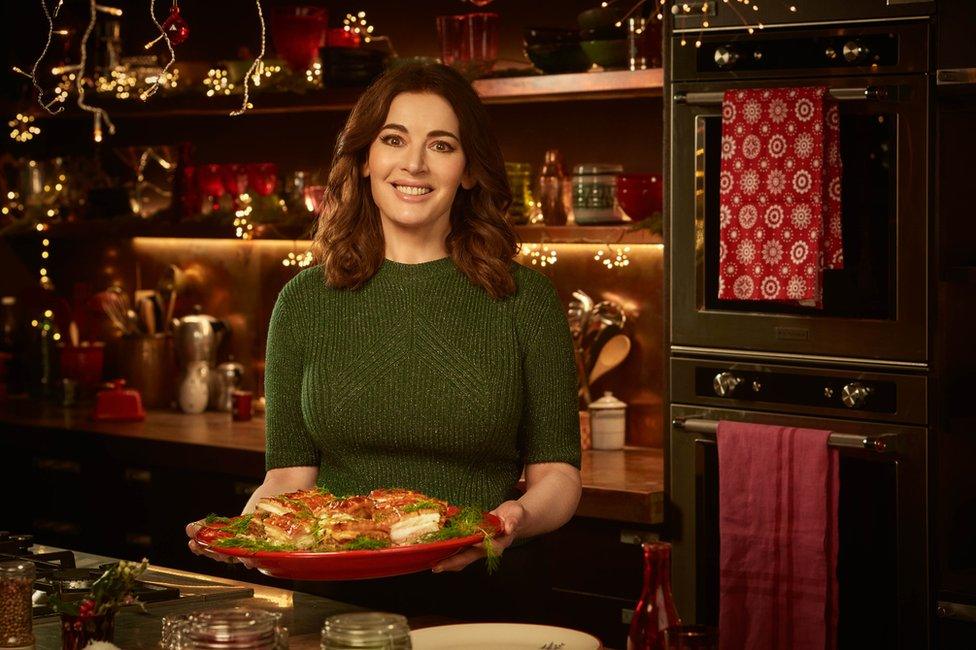
Nigella Lawson's most recent TV show has been Nigella: Cook, Eat, Repeat, was made alone in lockdown
"I didn't think it was an odd thing to do," she says of her willingness to open a door on her private life in those shows.
Now however things have changed, she adds: "I would now [think it odd], but I didn't then. I suppose that's the thing about when you start something - you have a certain innocence."
After more than 20 years in the spotlight, its glare sharpened by the rise of social media, the 61-year-old says she is now much more "guarded".
"It seems to be a crueller world in terms of how we judge people now, and there's this real impulse not to see people as human beings with feelings and anxieties," she tells The Food Chain podcast from BBC World Service.
"I think it's very harsh out there and it's exhausting, so if I was starting off now, I wouldn't want to be doing all that."
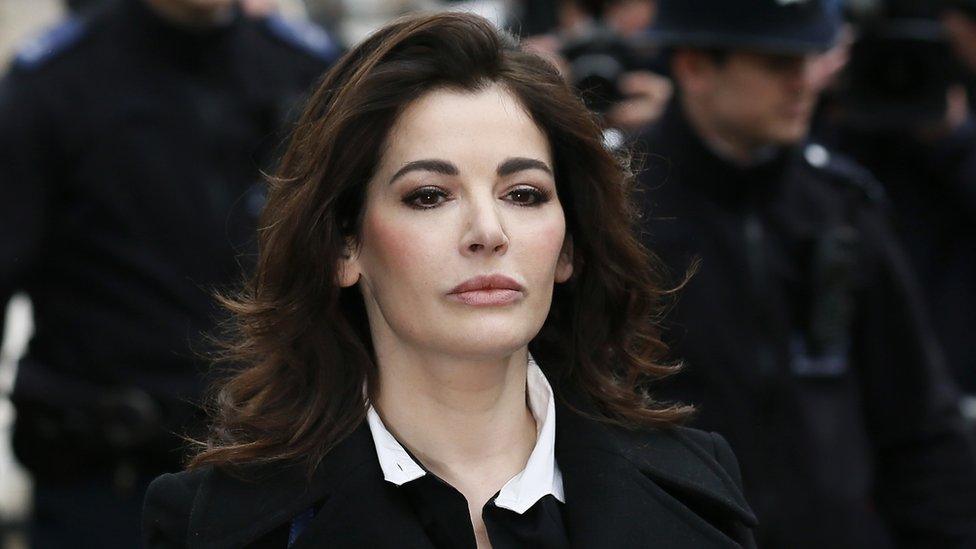
Nigella Lawson arriving at Isleworth Crown Court in 2013 for the fraud trial of her former assistants
Her wariness has been compounded by the painful personal experiences she's had to deal with over the years.
In 2013, as her marriage to the millionaire businessman Charles Saatchi ended, and her two former assistants stood trial for fraud, Lawson's personal life was picked over in forensic detail in the courtroom and then the newspapers.
"I just stopped reading newspapers for a while, and I certainly stopped giving interviews," she explains.
But, despite those scars, there still appears to be a kind of compulsion for Lawson to keep sharing.
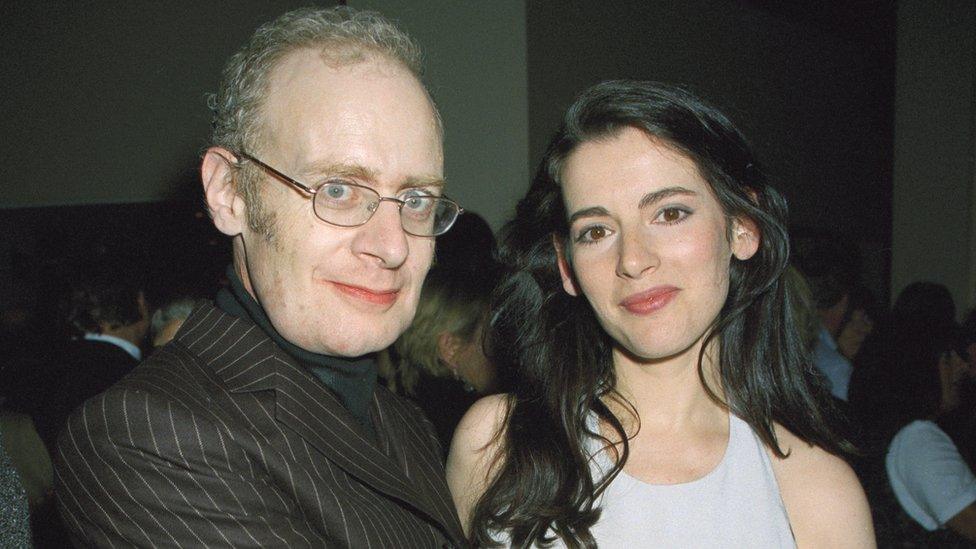
Nigella Lawson's first husband, the journalist John Diamond died of cancer
"I'm probably less open than I was," she adds. "It's not that I don't want to say a lot of things. It's complicated.
"I think there has to be a balance between being guarded and oversharing, and whether I get that balance right I don't know.
"I don't think there's any getting it right."
Striking that delicate balance has been put to the test again in recent months. Even though she often finds them "reductive and uninteresting", Lawson has been back giving interviews to promote her latest book Cook, Eat, Repeat, and its accompanying BBC TV series.
And this time there's no sign of her children - now in their 20s - or her friends. She didn't really have much choice in the matter though as both shows were undertaken in lockdown, which Lawson spent - and is spending again - on her own.
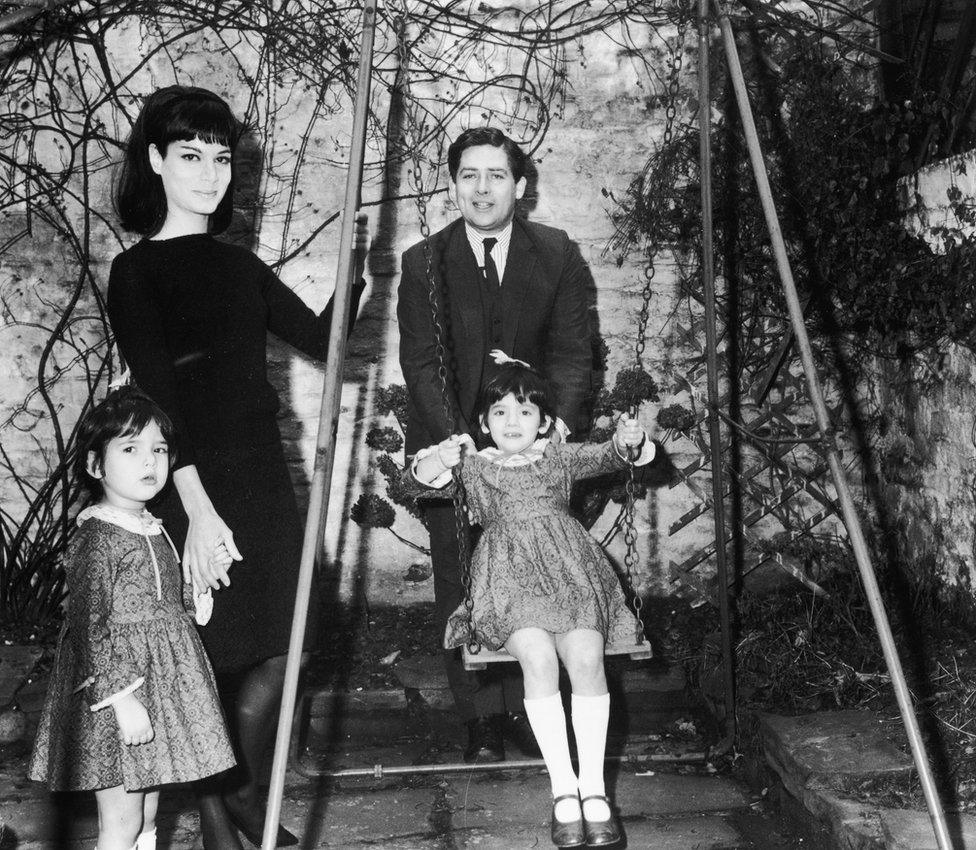
Nigella Lawson (in the swing) says her upbringing was difficult
"It was my great good fortune to be writing because I had this focus to my days," she says. "And in writing about food you also think about the people you ate those things with, so in a way the book kept me company."
The idea of food or recipes as souvenirs of people is poignant for Lawson - in the space of 15 years between her mid-20s and early 40s she lost her mother, sister, and first husband John Diamond, all to cancer.
Aside from comfort and connection, lockdown has also brought Lawson an appreciation of her own company, something she says she lacked in her early years.
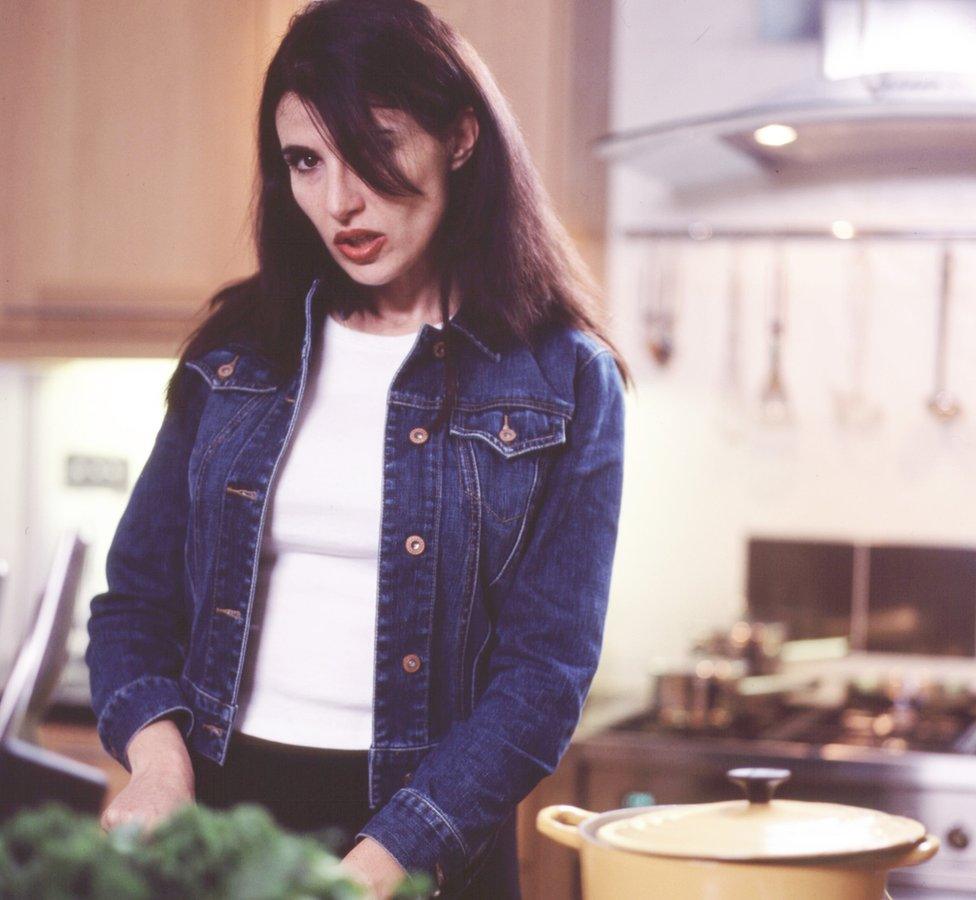
Impressionist Ronni Ancona played with Nigella Lawson's perceived sultry presenting style in her portrayal

She had what she describes as a difficult childhood as the eldest daughter of socialite Vanessa Salmon and journalist-turned-politician Nigel Lawson, who became chancellor under Margaret Thatcher.
Lawson's childhood home in London was far from "guarded" - other writers and politicians would often outnumber Lawson family members.
Neither was it a home that inspired a particular passion and enthusiasm for food, at least not for her. Although she describes her family as "food obsessed", she says it was a part of life she felt "alienated from" as a child.
"I found meals really anxiety provoking. I was brought up in an incredibly old-fashioned way.
"You had to eat everything on your plate and if you didn't you had to sit there until you ate it, and then if that still didn't work a plate of cold congealed food would be put in front of you at the next meal and you'd have to eat it then.
"It's like aversion therapy for eating."
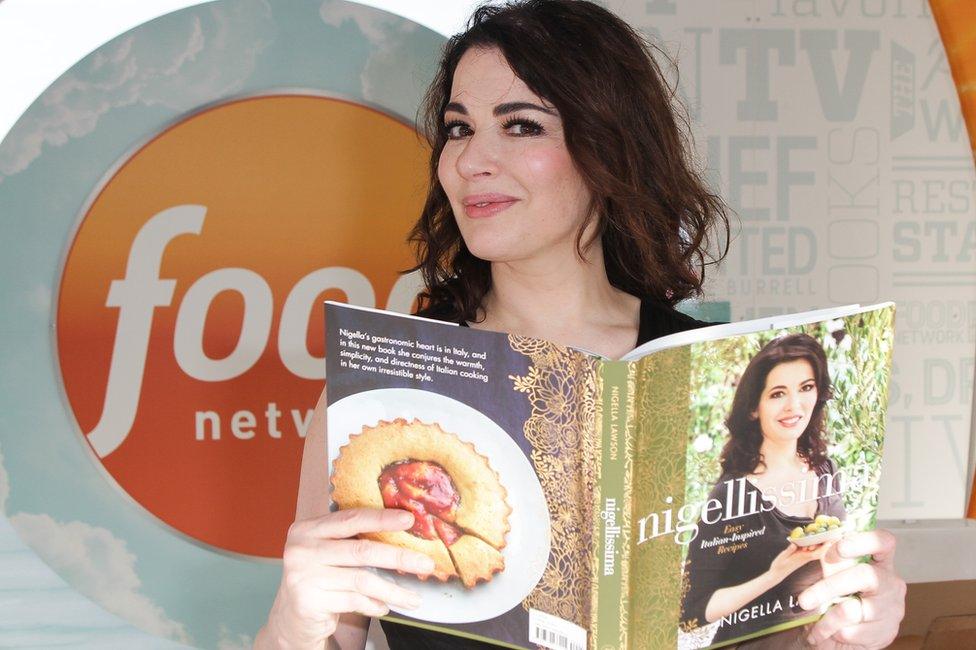
Nigella Lawson is still driven to share through her love of food
And yet now, Lawson is perhaps best known for her rapturous enjoyment of food, even if it does sometimes make her the butt of jokes. "I think I'm camp rather than coquettish," she counters.
She believes much of that enjoyment, and in turn her desire to portray food and cooking as pleasurable rather than a challenge, comes as a reaction to her mother, who she describes as having a "difficult relationship" with food, something Lawson discovered as a teenager.
"I think it was anorexia, on the edges, and I think it was bulimia," she says.
"When you're going through puberty as a girl, I think, it's when you most feel you have to set yourself apart from your mother. So I think in a way I became easier about eating because I was so determined not to be like her.
Since that first TV series in 1999, Lawson has made hundreds of shows, in the US and Australia as well as the UK, and she's written more than a dozen cookbooks, many of them international best-sellers.
But despite her desire to close the window a little, despite the "gratitude" for her place in life, there's still that drive to share.
"After I've done a book, I'm always anxious that I'll never have an idea for another one. I have got a few ideas, and then sometimes a completely different book swims up.
"I'm trying not to panic, but every now and then I have to have a strict word with myself not to."
The full interview can be heard via BBC Sounds in the podcast Nigella Lawson: My life in five dishes by The Food Chain programme from the BBC World Service.